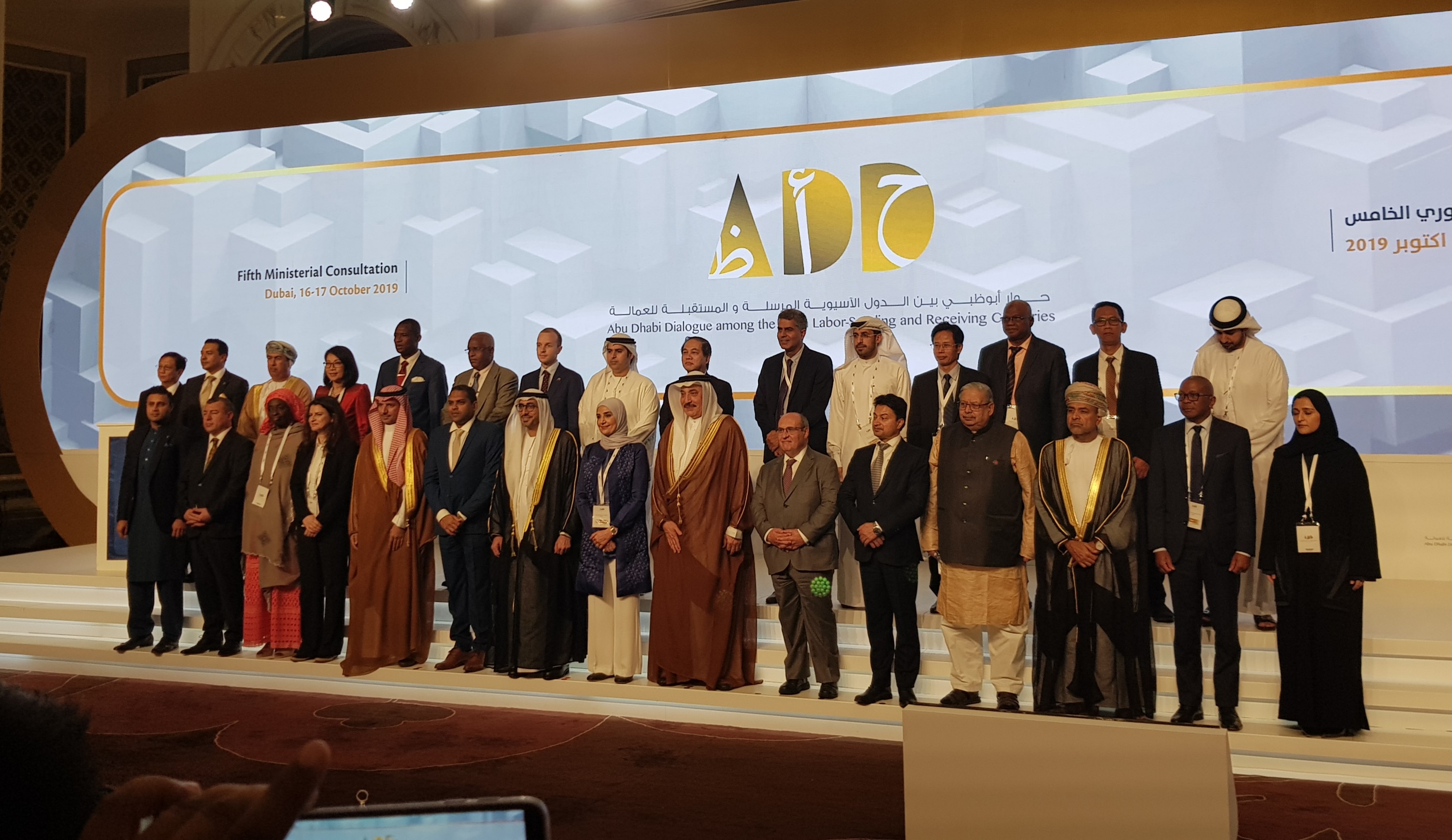The 5th Ministerial Consultation of the Abu Dhabi Dialogue took place in Dubai on 16-17 October 2019. Lithuania as the current Chair of the Prague Process accepted the invitation in order to promote the Prague Process at international level and ensure its adequate positioning among other Regional Consultative Processes (RCPs). Mr. Tautvydas Tamulevicius, Vice Minister of the Interior of Lithuania, took an active part in the Special Meeting and the High-Level Panel Discussion on Interregional Cooperation, where he was one of three panellists.
In his statement, he briefly introduced the Process, its Migration Observatory and Training Academy before referring to the interplay with other migration dialogues and the benefit of having the Secretariats of several dialogues within a single organisation such as ICMPD. The Vice Minister agreed that the cooperation among RCPs could allow them to learn from each other, replicate good practices and avoid the mistakes or challenges experienced by others. The realities, interests and legal frameworks on the migration, of course, tend to differ among the various RCPs or even individual states. While there is no ‘one-size-fits-all’ approach to follow, the decade-long experience of international organisations in facilitating RCPs could play a useful role in the further sharing of good practices, effective policy approaches and possible joint benefits. Mr. Tamulevicius outlined some possible ways to enhance the interaction among RCPs whereby their Chairs could:
- establish a contact network for regular communication;
- update each other on the state of play of their respective RCPs;
- share good practices for the operationalisation of their work;y
- extend mutual invitations to their meetings (both policy- and expert-level);
- use online solutions and modern technologies for information sharing and capacity building.
In principle, RCPs could be more vocal, better heard and more effective if they provided their contributions to global dialogues such as the GFMD, IDM or GCM collectively. However, such collective approach may require strong commitments and coordination mechanisms among RCPs. It could also mean that some elements of particular importance to one RCP remain unarticulated, thereby raising practical or even political implications.
Lithuania, together with the Prague Process Secretariat (ICMPD) will share the results of the discussions with the two decision-making bodies of the Process - the Strategic Group and the Senior Officials´ Meeting – in order for them to assess the possible advantages and ways for inter-regional cooperation, which could eventually induce policy convergence amongst the regions.
Dubai Declaration endorsed
On 17 October, the ADD participating states endorsed the Dubai Declaration, which outlines concrete objectives for further cooperation in the area of labour migration:
- To “promote compliant and transparent labour recruitment and placement practices” by using modern technologies
- To “address mismatches between workers‘ skills and employer requirements (…), raise productivity and positively impact wage structures for expatriate workers.”
- To “develop a research agenda to further investigate the possible impact of the challenges and opportunities associated with the Future of Work.”
- To “encourage the skilling and certification of domestic workers in line with relevant standards.”
The Declaration further refers to the joint support of the ADD participating states to the promotion of interregional cooperation among RCPs and the commitment of the Abu Dhabi Dialogue to work with likeminded processes towards a coordinated input into global processes on labour migration.

